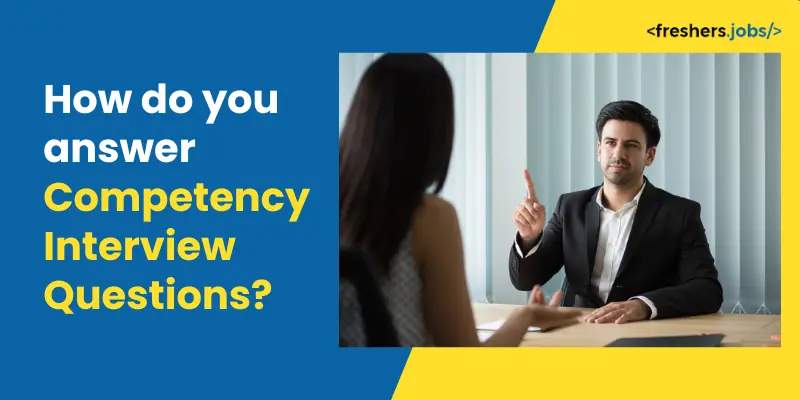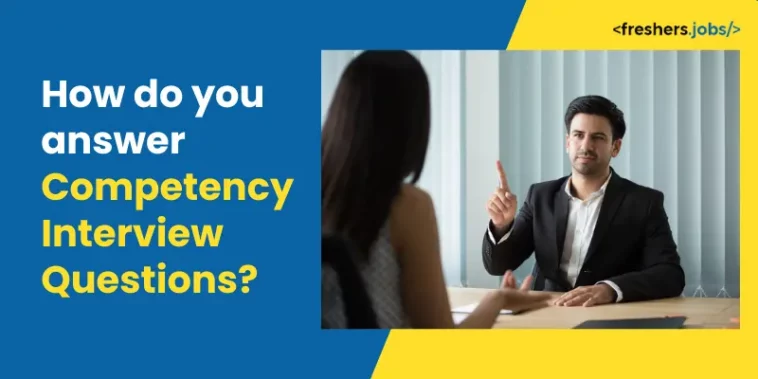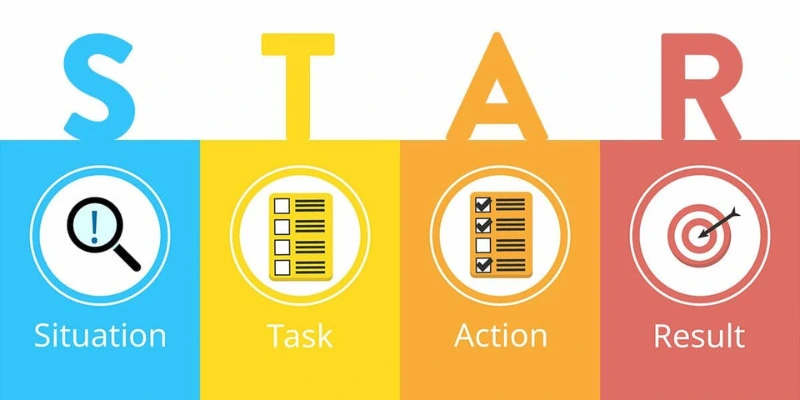Have you heard about competency-texting interviews? If not yet, this blog is for you to guide on what kind of questions will be asked in such interviews, and the level of preparation that is expected from you to take on and win those interviews. Let us now see these different forms of interviews in detail.

Competency based interview
These are interviews that aim at finding out how you have used or would be using your special knowledge or skills in a situation based on your previous experience and how you would handle a particular problem or task and face the challenges associated with it. These kinds of interviews, also known as behavioural or situation-based questions, will cover your first round of the main interview process. For example, you might be asked to explain a situation where you handled a conflict of ideas regarding a project, or an interesting time management crisis that you solved previously, etc.
Competency based interview questions
As said earlier, competency-based questions will test your various skills and you have to answer them by putting yourself in the context of real events. They will ponder your past experience at work through different questions. These skills are based on the job role you are being interviewed for. Questions might begin with “Describe how you handled…”, “Tell me an example of…”, or “How did you solve…”, etc. Let us see some examples.
- Recount an instance where you provided leadership to a team.
- Share a specific example of how you resolved a conflict in the workplace.
- Explain your methods for maintaining positive working relationships with your colleagues.
- Discuss a recent significant decision you made and the process you used to reach it.
- Highlight your most significant accomplishment to date.
- Describe a project in which you employed various leadership styles to attain your objective.
- Detail a time when your communication skills positively impacted a situation.
- How do you handle challenging situations and adversity?
- Provide an example of a workplace challenge you faced and the steps you took to overcome it.
- Narrate a situation where you demonstrated integrity and professionalism.
- Explain your approach to influencing people in situations with conflicting interests.
- Give an example of a scenario in which you creatively solved a problem.
- Share us a time when you made a decision and then changed your mind.
- Describe a situation in which you were asked to undertake a task that was totally new to you.
- Describe a time when you achieved success despite facing overwhelming odds.
How can you answer competency interview questions?
Now, let us focus on how to answer such competency testing questions. One of the effective ways to clearly and concisely communicate important points is by using the STAR method, which stands for Situation, Task, Action, and Result. Firstly, when answering questions, explain in detail the task or situation or the hardship you were faced with, then describe the actions you took to handle that situation, and finally, highlight the results or outcomes of your efforts.
It is important to be natural and avoid sounding scripted and tailor your answers to the specific role you are being interviewed for. While it’s crucial to stay prepared to face such questions, it’s also important to avoid making up stories or attempting to improvise, as this can negatively impact the quality of your responses in the interview. Competency interviews are not meant to panic you. Always be simple and honest and avoid embellishing the truth, as any false information can easily be verified sooner or later.
How do you prepare yourself for the interview?
To effectively handle competency questions, thorough preparation is key. Being well prepared will allow you to confidently tackle these questions. First and foremost, familiarize yourself with the job role and the employer’s expectations. Then, identify the specific competencies required based on the job description. Recall relevant examples from your experiences and practice articulating them. Reflect on your overall work experiences to identify situations that align with the current role and gather pertinent task-oriented details, challenges you encountered, and the solutions you implemented. Organize these examples and relate them to the expected answers. Review the STAR formula and consider discussing your responses with a friend or family member. Practising in this manner can provide you with valuable insights from a different perspective, ultimately giving you an advantage during the interview. College freshers can get a great deal of help to handle such interviews with the help of Freshers Jobs, where you can find relevant sample questions and situations.
During interviews, employers or the hirers often seek to assess the level of essential competencies in candidates. These competencies typically include adaptability, commercial awareness, communication skills, conflict resolution techniques, decisiveness, independence in handling things, flexibility, leadership qualities, problem-solving skills, organization, resilience, and teamwork. A proper understanding of the job that you are aiming for and adequate preparation will help you succeed in such interviews. Be confident and never cook up stories when you are in the interview. Remember, over-confidence and unpractical answers could create a negative impact and may not fetch you the desired result. Unlike unstructured interviews, which are more informal and may involve random, open-ended questions, competency based questions and interviews are more systematic and always to the point. In these interviews, each question is designed to target a specific skill required for the job, which allows employers to obtain a clear understanding of a candidate’s capabilities, exemplary qualities and suitability for the role.
In summary, it is important to master the fundamental aspects of interview queries and engage in thorough preparation before attending an interview. Competency-based interviews involve inquiries and questions aimed at assessing how you have utilized particular skills in past roles and your approach to handling problems and tasks. Also known as behavioural interviews, they are commonly utilized in the initial stages of the interviews. By familiarizing yourself with these questions, you can rehearse well your responses to appear more confident during the interview. Investing time in preparing for this type of interview can also help you grasp the specific essential skills that the employer is seeking in potential candidates and ace the interview. Young people looking to begin a career in software or any related domain can refer to Free Alert Jobs, as you can get regular updates and alerts for job interviews based on your qualifications.




